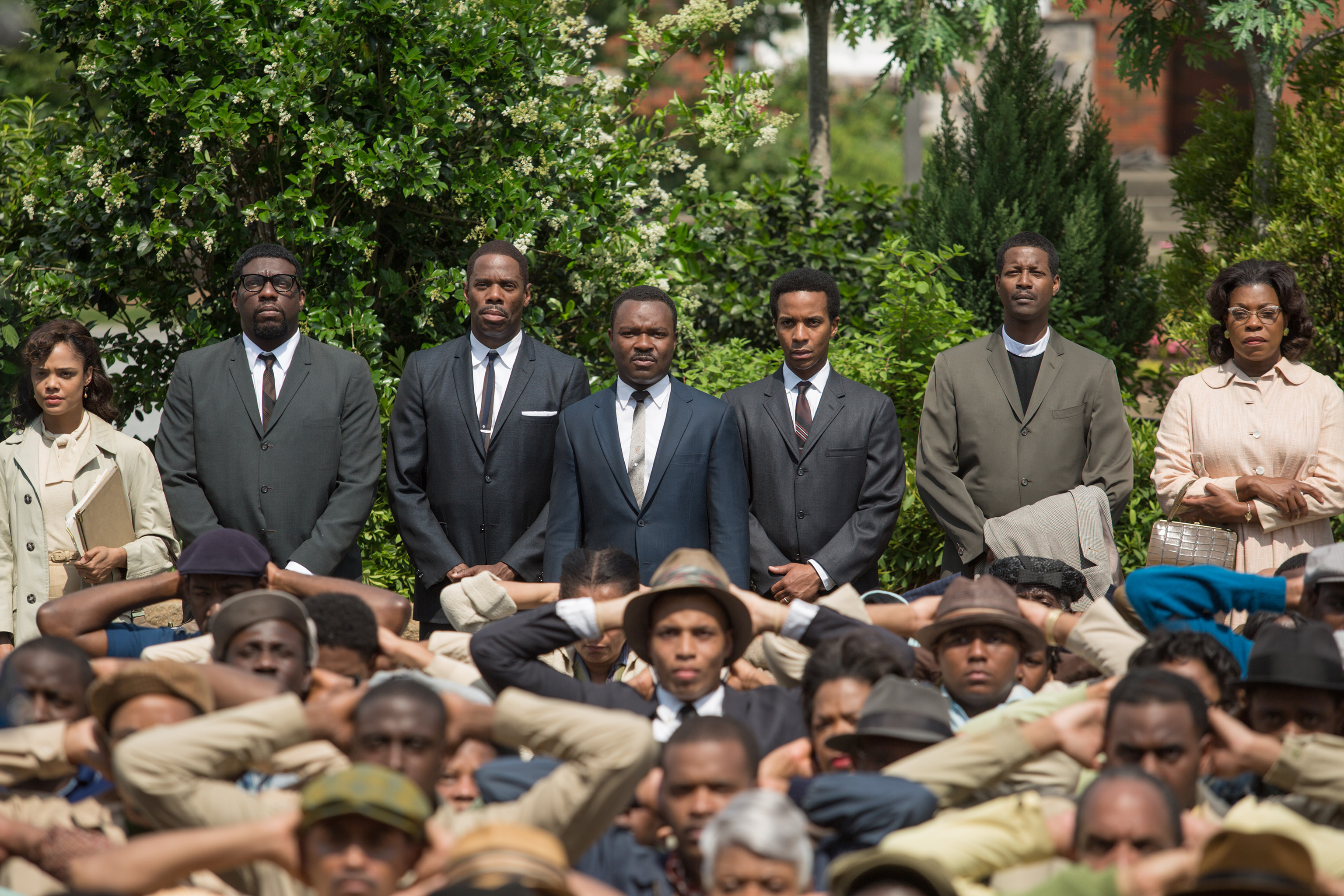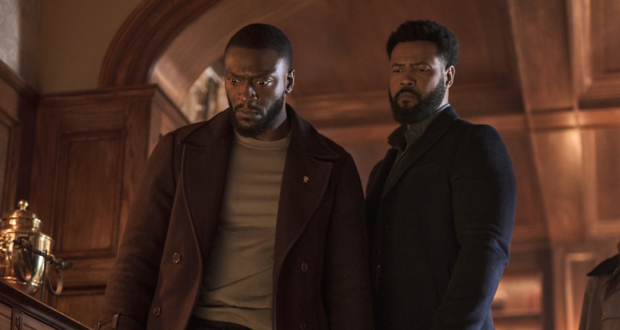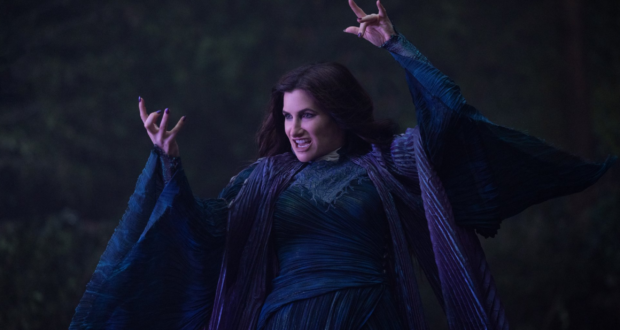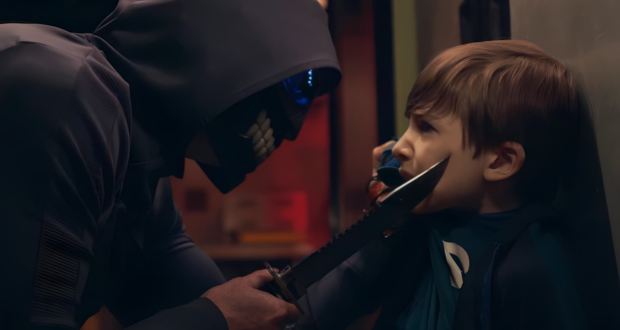When I first watched Selma in early December, the freshness of the Ferguson protests and riots resonated in my mind. I remember walking from the UA Pavilions to my apartment in Cap Hill and seeing multiple police officers monitoring a demonstration. I recalled the scene in Selma on the bridge when the protesters were with a few clergy members. As a Christian, I wish more believers were engaged with society beyond playing the victim over petty issues as fellow brethren face ISIS beheadings. (The erosion of privilege can be daunting which has been showcased throughout history and featured in Selma.) I felt a strong desire for “The Church” to be a part of a new movement to embrace the community.
Earlier that week, a pastor I’m connected with on Facebook was condemned by some on social media for interacting with East High School students who marched on Colfax about the police shootings. “Do you approve of their support of violence?” one person commented. God forbid if a pastor meets with hurting people marching past his office just to listen to their perspective. The day after watching Selma with this on my mind preparing for superficial Holiday parties, I was relieved to be invited to a peace march with a dozen Denver churches! On a seasonably warm Sunday afternoon, hundreds of us held candles and quietly walked down Colfax. We prayed at the Capitol and it was refreshing to be in the crowd and see familiar faces within the community. I felt renewed and reassured that members of the church can make a stand against earthly injustice instead of just complaining about being culturally misunderstood.
Ava DuVernay’s Selma stirred my soul as much as the mentioned personal events. After a second viewing during the release, there’s a lot I appreciated about her Martin Luther King, Jr. film. She embraces what Doctor King valued and doesn’t shy away from his Christianity. There’s a brief, unexpected beautiful moment when a white pastor describes the art of preaching while walking in the Spirit by not always looking at his notes and just going with the flow. He even claims that MLK Jr. knelt before God and was told not to go into Selma. Likewise, MLK wasn’t the saint he was extolled to be.
There is a devastating scene of heartbreak involving Coretta Scott King listening to an audio recording with her husband present. After she asks if he “loved the other women,” there is uncomfortable silence before MLK responds with a “no.” This was brave and important that Ava DuVernay includes the harsh realities of infidelity in a marriage. A simpler movie wouldn’t feature something this tough and I applaud her for including it. It was vital for the story to progress. Ava’s portrayal of cartoonishly, out-of-touch white politicians with the civil rights struggle was fascinating. We typically see Caucasians portrayed in civil rights era movies as the shining white knight here to help. There are complications that prevent this pleasant fantasy from being a reality.

Ava DuVernay includes the harsh realities of infidelity in a marriage. A simpler movie wouldn’t feature something this tough and I applaud her for including it.
As a female African American filmmaker, Ava DuVernay provides a fresh perspective on the legacy of Martin Luther King, Jr. It isn’t an exaggerated glorification but honest about his values and even imperfections. A lot of attention has been paid to the historical accuracy controversy which is minor compared to the movie. Ditto for Oprah’s performance. She isn’t in this often and nowhere overwhelms this civil rights drama as she did in Lee Daniel’s The Butler. David Oyelowo was a revelation as Martin Luther King, Jr. in a captivating performance. There are many great scenes of him responding to his surroundings with various emotions on his face. It goes beyond imitation and is the greatest portrayal of the beloved reverend. Before our eyes, Oyelowo officially becomes Ms. DuVernay’s muse.
Their breakthrough collaboration Middle of Nowhere is a riveting must-see Sundance winning drama available on DVD next week. Ava DuVernay’s accomplishment goes beyond the scope she captures while filming. It is a powerful gender role reversal for a female director to command a talented actor in male dominated Hollywood. Both these characteristics confirm that Selma is an extraordinary cultural achievement in cinema; a game changer for both the burdensome racial and gender barriers in Hollywood.
Between highlighting police brutality, the importance of peaceful protesting, and even the eeriness of government wiretapping, the soul of America desperately needs a movie like Selma. News broke after my second screening of the NAACP Bombing an hour south in Colorado Springs. This served as a reminder of the modern relevance of Selma. Some scenes have stuck with me beyond what I’ve mentioned; MLK Jr. in prison invoking Paul and the Gospel of Matthew, the poetic riot scene, and the cruel brutality in the diner.
Selma is just as magnificent as Speilberg’s Lincoln with exquisite, behind-the-scenes political interactions (though this isn’t on that grand of a scale, especially from the production design standpoint). I hope audiences show up BIG for this movie. The awards season strategy, of opening it wide the weekend before the MLK Jr. holiday, is brilliant. And it was touching that the studio opened this beyond New York and Los Angeles on Christmas. Kudos Paramount! Beyond the awards glitz and the social justice struggle happening today, Ava Duvernay’s Selma is masterful filmmaking that will be everlasting.
SELMA is the story of a movement. The film chronicles the tumultuous three-month period in 1965, when Dr. Martin Luther King, Jr. led a dangerous campaign to secure equal voting rights in the face of violent opposition. The epic march from Selma to Montgomery culminated in President Johnson (Tom Wilkinson) signing the Voting Rights Act of 1965, one of the most significant victories for the civil rights movement. Director Ava DuVernays SELMA tells the real story of how the revered leader and visionary Dr. Martin Luther King Jr. (David Oyelowo) and his brothers and sisters in the movement prompted change that forever altered history.(C) Paramount
Selma is the Timely Movie America Needs
-
Overall - 9.5/10
9.5/10























